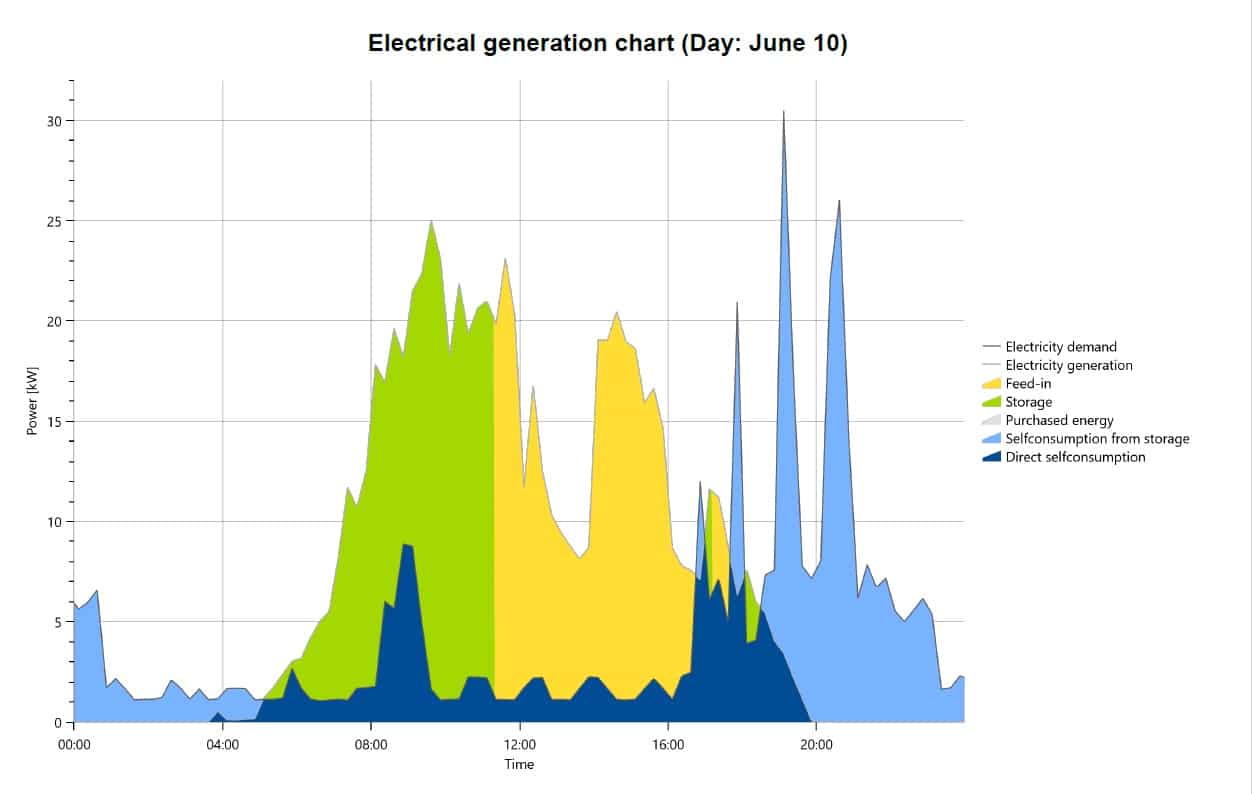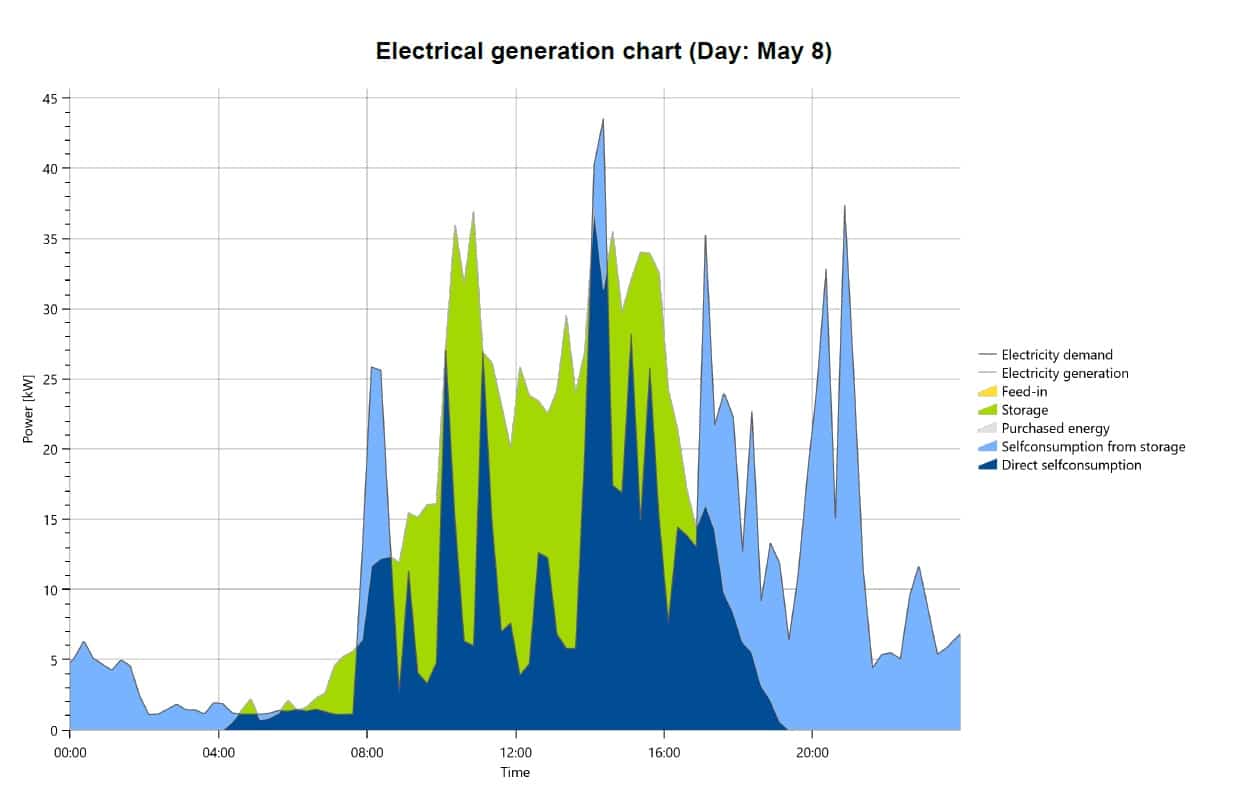Going solar is an excellent way to reduce your carbon footprint and save on energy bills. But how many solar batteries do you need to power your entire home? In this comprehensive guide, we’ll break down the essential factors to consider when designing the perfect solar battery system for your home.
Understanding Your Energy Needs
First and foremost, you’ll need to determine your household’s energy consumption. Check your utility bill to find out your average daily energy usage in kilowatt-hours (kWh). Keep in mind that energy consumption may vary throughout the year due to factors such as climate and seasonal changes.
Solar Panel Sizing
To calculate the size of the solar array required, you’ll need to know how much sunlight your area receives on average. A solar panel sizing tool can help you estimate the solar panel capacity needed to meet your energy needs.
Battery Capacity
Once you know your energy consumption and solar panel size, it’s time to determine the battery capacity. Battery capacity is measured in kilowatt-hours (kWh) and should be enough to store the energy produced by your solar panels during the day for use at night.
Depth of Discharge
Depth of Discharge (DoD) refers to the percentage of a battery’s capacity that can be used before it needs to be recharged. Most solar batteries have a DoD of 80% to 90%, meaning you should only use 80% to 90% of the battery’s total capacity to ensure optimal performance and lifespan.

Calculating the Number of Solar Batteries
To calculate the number of solar batteries needed, divide your household’s daily energy consumption by the battery capacity, considering the DoD. For example, if your home requires 30 kWh of energy per day and you have a 10 kWh battery with a 90% DoD, you’ll need three batteries:
(30 kWh / (10 kWh * 0.9)) = 3.33 ≈ 3 batteries
Enhancing Your Solar Battery System
Here are some additional tips to optimize your solar battery system:
- Energy Management System (EMS): An EMS can help regulate energy consumption, ensuring the efficient use of stored solar energy.
- Maintenance: Regular maintenance can extend the life of your solar battery system. Check out our solar battery maintenance guide for more information.
- Energy Efficiency: Consider investing in energy-efficient appliances and smart home technology to further reduce your energy consumption.
By understanding your energy needs, solar panel sizing, and battery capacity, you can create the perfect solar battery system for your home. Explore our website for more information on solar panels and renewable energy solutions.

Solar Battery Types and Brands
There are various types of solar batteries available, each with its own advantages and disadvantages. The two most common solar battery types are:
-
Lead-Acid Batteries: These batteries are widely used in solar energy systems due to their affordability and reliability. However, they have a shorter lifespan and lower energy density compared to lithium-ion batteries.
-
Lithium-Ion Batteries: Lithium-ion batteries are known for their high energy density, longer lifespan, and excellent performance. They are more expensive than lead-acid batteries but often prove to be a more cost-effective choice in the long run.
Some popular solar battery brands include:
- Tesla Powerwall
- LG Chem RESU
- SonnenBatterie
- BYD B-Box
It’s crucial to research and compare different brands and types of solar batteries to determine which one best suits your needs and budget.
Solar Incentives and Rebates
Don’t forget to explore available incentives and rebates when designing your solar battery system. Many governments and utility companies offer financial incentives to encourage the adoption of solar energy. These incentives can significantly reduce the upfront cost of your solar battery system, making it more accessible and affordable.
Visit the Database of State Incentives for Renewables & Efficiency (DSIRE) or your local government’s energy department website to learn more about solar incentives and rebates in your area.
Backup Power and Grid Connectivity
Another essential aspect to consider is whether you want your solar battery system to provide backup power during grid outages. If so, you’ll need to invest in a solar inverter with backup functionality. This feature enables your solar battery system to switch to backup mode, supplying power to your home during grid outages.
Moreover, you may want to connect your solar battery system to the grid to benefit from net metering programs. Net metering allows you to sell excess solar energy back to the grid, further reducing your energy bills. Consult with your utility company and local regulations to determine if net metering is available in your area.
Frequently Asked Questions
Q: How long do solar batteries last?
A: The lifespan of solar batteries varies depending on the type and brand. Lead-acid batteries typically last between 3-7 years, while lithium-ion batteries can last for 10-15 years or more. Regular maintenance and proper usage can help extend the life of your solar batteries.
Q: Can I expand my solar battery system in the future?
A: Yes, most solar battery systems can be expanded to accommodate increased energy needs or additional solar panels. However, it’s essential to consult with a solar professional to ensure that your system’s design and components can support expansion.
Q: How much does a solar battery system cost?
A: The cost of a solar battery system depends on the size, battery type, and additional features such as an EMS or backup inverter. On average, a solar battery system can cost between $5,000 and $15,000, excluding installation fees and any available incentives or rebates.
Q: Is it possible to go off-grid with a solar battery system?
A: Yes, it is possible to go off-grid with a solar battery system. However, going off-grid requires a larger solar panel array and battery capacity to ensure that your energy needs are met during periods of low sunlight. Additionally, an off-grid system typically requires a backup generator for emergencies.
Q: What is the environmental impact of solar batteries?
A: Solar batteries help reduce greenhouse gas emissions by storing and utilizing clean, renewable energy from the sun. However, the manufacturing and disposal of solar batteries can have environmental impacts. Choosing batteries with longer lifespans and recycling used batteries can help minimize these impacts.
By carefully considering all aspects of a solar battery system, from energy needs and system design to incentives and monitoring, you can create an efficient and reliable solar energy solution for your home. Continue exploring our website for more insights on solar farms, EV charging stations, and wind turbines.
Q: How do I maintain my solar battery system?
A: Regular maintenance of your solar battery system is crucial for ensuring optimal performance and longevity. Key maintenance tasks include checking for loose connections, cleaning solar panels, inspecting the battery for damage or swelling, and monitoring performance. Refer to your solar battery manufacturer’s guidelines for specific maintenance instructions.
Q: What happens to my solar battery system during a power outage?
A: If your solar battery system is connected to the grid and equipped with a backup inverter, it can provide power to your home during a power outage. When the grid goes down, the backup inverter switches to an off-grid mode, allowing you to use the energy stored in your solar batteries.
Q: Can I install a solar battery system myself?
A: While it is possible to install a solar battery system yourself, it is generally recommended to hire a professional solar installer. Solar battery systems involve complex electrical wiring and can pose safety risks if not installed correctly. A professional installer can ensure that your system is designed and installed safely and efficiently.
Q: Do solar batteries work during winter or cloudy days?
A: Solar batteries store energy produced by your solar panels, regardless of the weather. However, solar panels typically generate less energy during winter or cloudy days due to reduced sunlight. This reduced energy production may impact the amount of energy available for storage in your solar batteries. Proper system sizing and energy management can help compensate for seasonal fluctuations in solar energy production.
Q: Can I use my solar battery system to charge my electric vehicle (EV)?
A: Yes, you can use your solar battery system to charge your electric vehicle. By connecting your EV charging station to your solar battery system, you can utilize the stored solar energy to charge your vehicle. Learn more about EV charging stations and their benefits here.

